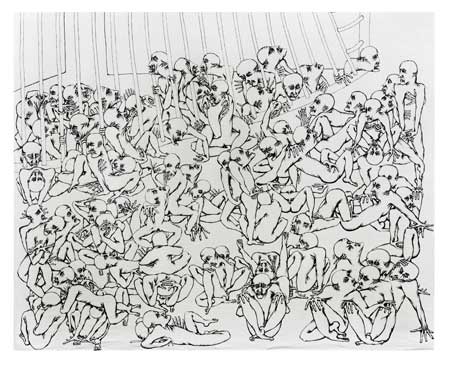Submitted by Tyler Durden on 08/30/2010 10:57 -0500
Today's
stunning if true news comes from Stratfor which has just issued a blast notifying of circulating rumors "
in China that People’s Bank of China (PBC) Gov. Zhou Xiaochuan may have left the country." If proven true, this will be the proverbial first rat bailing on the sinking ship. It gets scarier vis-a-vis prospects of US bonds: "The rumors appear to have started following reports on Aug. 28 which cited Ming Pao, a Hong Kong-based news agency,
saying that because of an approximately $430 billion loss on U.S. Treasury bonds, the Chinese government may punish some individuals within the PBC, including Zhou." Um, $430 Billion in losses? Hopefully this explains why next month's TIC report won't show any incremental increase in Chinese holdings of Treasuries (and most likely quite the opposite). Stratfor continues: "Although Ming Pao on Aug. 30 published a report on its website indicating that the prior report was fabricated by a mainland news site that had attributed the false information to Ming Pao, rumors of Zhou’s defection have spread around China intensively, and Zhou’s name has been blocked from Internet search engines in China." Even if Zhou is safe and sound in Beijing, the fact that China has experienced nearly half a trillion in losses on its UST holdings is shocking, and means that the US Treasury bubble may be approaching the popping phase.
From
Stratfor:
STRATFOR has received no confirmation of the rumor, and reports by state-run Chinese media appeared to send strong indications that Zhou is in no trouble at the moment. However, the release of this rumor and its dispersion throughout the public is significant, particularly as the Communist Party of China (CPC) is preparing for a leadership transition in 2012.
Chinese state-run media and official government websites have run several high-profile reports about Zhou, which should be seen as a move to refute the rumors. The PBC website published two articles on its homepage reporting on Zhou’s meeting with visiting Japanese Financial Services Minister Shozaburo Jimi during the third China-Japan high-level economic dialogue as well as a meeting with an Italian delegation. Xinhua news agency reported that Zhou told the PBC Party Committee Enlargement Meeting on Aug. 30 it should “continue to implement justice, and strengthen legislative work in the financial system.” Prior to this news, Zhou appeared at the 2nd annual conference of the heads of the Chinese, Japanese and Korean central banks held on Aug. 3, and his most recent public appearance was Aug. 10 for China’s Financial System Anti-corruption Construction Exhibition.
Zhou is known to have lofty political ambitions and is believed to be a close ally to former Chinese President Jiang Zemin, as well as a core figure for Jiang’s “Shanghai Gang.” There has been no shortage of rumors about Zhou’s possible dismissal in the past five years, as he is believed to be associated with several high-level financial scandals. For example, Zhou was rumored to be under “shuanggui,” a form of house arrest administered by the CPC, during the massive crackdown of Shanghai Party Secretary Chen Liangyu in 2006, which was perceived in the country as a crackdown of the Shanghai Gang and part of Hu’s effort to consolidate power ahead of the 2007 power transition. There was also a rumor that he might have been detained following the investigation and arrest of Wang Yi, the vice governor of the China Development Bank, along with several other officials in the financial circle. Currently, several financial scandals are still under investigation, and it is likely that Zhou, as PBC governor and one of the most powerful economic players in the country, could be associated with some cases. Therefore, whether or not the rumor is true at this time, the leaking of this news is very likely to be associated with a power struggle within the Communist Party’s economic hierarchy.
We will bring you more as we get it on this potentially groundbreaking development.
Some math:
Assuming average 6 Year duration on holdings (completely arbitrary), and a 2% drop in rates, means $430 billion is 12% of total notional,
so somehow China must be short $3.5 trillion in notional or synthetically. Not good.

